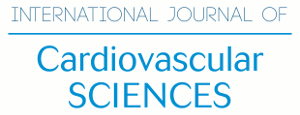Abstract
Background:
Neuromuscular electrical stimulation (NMES) using a stimulation wave for 5 days/week over 8 weeks has been used as a treatment option for congestive heart failure (CHF) patients who are unable to tolerate aerobic exercise.
Objective:
We assessed the impact of a shorter NMES protocol using a Russian stimulation wave on the functional status, quality of life (QoL) and inflammatory profile of end-stage CHF patients.
Methods:
Twenty-eight patients with end-stage CHF (53 ± 11 years) were randomized to the NMES or control group. Treatment was an NMES training program with Russian stimulation wave, applied for 50 minutes to both quadriceps femoral muscles twice weekly over seven weeks. The stimulation intensity was chosen to elicit muscle contractions in the NMES group and current input up to sensory threshold in the control group. Distance in the 6-minute walk test (6MWT) and QoL score by the Minnesota Living with Heart Failure Questionnaire were evaluated before, immediately after and one month after NMES protocol completion. Peripheral leukocytes were obtained to measure the gene expression levels of inflammatory cytokines.
Results:
The NMES group showed increases in the 6MWT (324 ± 117 vs. 445 ± 100 m; p = 0.02) and QoL score (64 ± 22 vs. 45 ± 17; p < 0.01) immediately but not 1 month after protocol completion, as well as increased gene expression levels of IL-1β, IL-6 and IL-8 after protocol completion.
Conclusion:
Using a shorter and fewer sessions NMES protocol improved the QoL score and functional class of severe CHF patients, and modulated the gene expression levels of some cytokines. This protocol might be a good alternative for patients with severe CHF and limitations in protocol adherence. (Int J Cardiovasc Sci. 2017;30(6)484-495)
Keywords:
Heart Failure; Exercise Tolerance; Electric Stimulation Therapy / adverse effects; Exercise; Rehabilitation; Heart Transplantation




